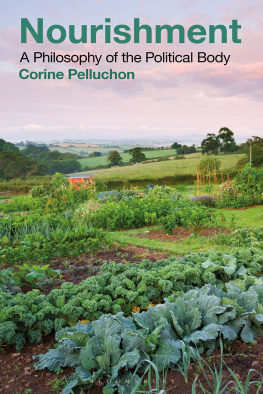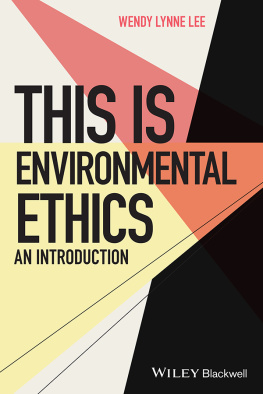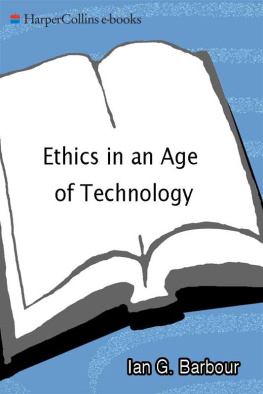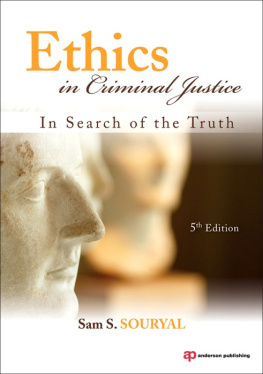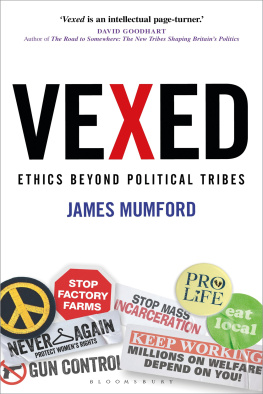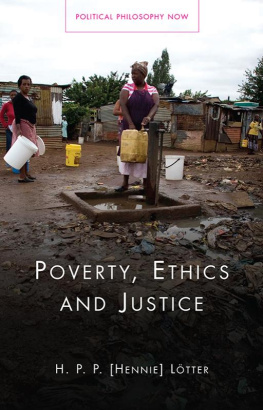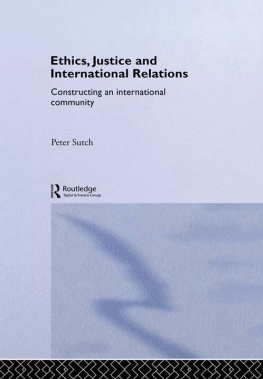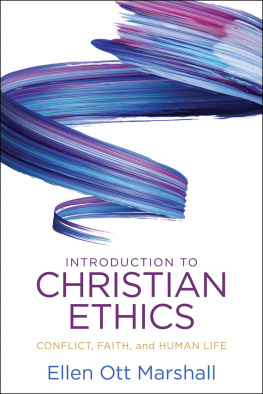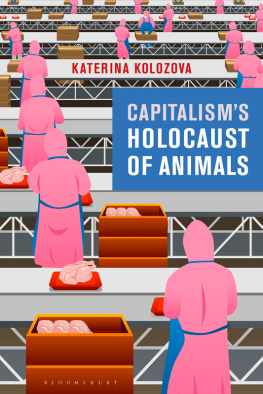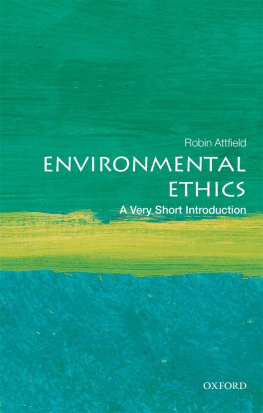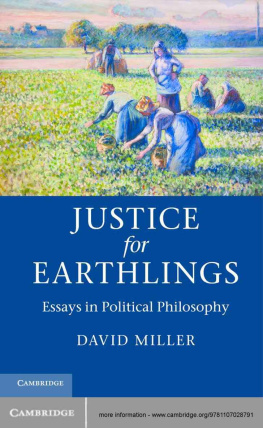Nourishment
Also available from Bloomsbury
Eco-Aesthetics , Malcolm Miles
Environmental Ethics , Marion Hourdequin
On Resistance , Howard Caygill
Slow Philosophy , Michelle Boulous Walker
Nourishment
A Philosophy of the Political Body
Corine Pelluchon
Translated by Justin E. H. Smith, and revised by Franois Cambien and Corine Pelluchon

Contents
What is eating? How is this metonymy of introjection to be regulated? One must eat well [il faut bien manger] does not mean above all taking in and grasping in itself, but learning and giving to eat, learning to-give-the-other-to-eat. One never eats entirely on ones own: this constitutes the rule underlying the statement, One must eat well. It is a rule offering infinite hospitality. This evokes a law of need or desire orexis, hunger, and thirst respect for the other at the very moment when, in experience one must begin to identify with the other, who is to be assimilated, interiorized, understood ideally speak to him or her in words that also pass through the mouth, the ear, and sight, and respect the law that is at once a voice and a court. The sublime refinement involved in this respect for the other is also a way of Eating well, in the sense of good eating but also eating the Good [le Bien manger]. The Good can also be eaten. And it, the good, must be eaten and eaten well.
Jacques Derrida, Il faut bien manger ou le calcul
du sujet , Points de suspension.
Notes
Jacques Derrida, Points Interviews, 19741994 , trans. P Kamuf et al., Stanford, Stanford University Press, 1995, pp. 2823.
In the beginning was hunger, Levinas writes in his Carnets de captivit . Thus is the body the starting point of our experience. It beats back the pretension that consciousness is at the origin of all sense, and requires that we take into consideration the materiality of our existence. For the original and primitive character of hunger signifies that existence is not understood in its essence as project. We are immersed in a sensible world, which is not only inhabited by human beings, nor even fashioned by them alone.
It is not the distinction between human beings and other living beings that is in question here. The notion of comportment, dear to Merleau-Ponty, is sufficient to inspire us to recall the efforts of contemporary philosophy, well known today, to confer to other species a moral status that is radically different from that of things, and to think of animals not simply as living beings, but as other existences. Life no longer possesses the ontological poverty to which it was reduced by mechanism and by all the philosophies that conceived freedom as the absolute beginning and as a tearing-out from nature. This re-evaluation of life went together with the consideration of sensibility as susceptibility to pain and pleasure, and with the rehabilitation of the sensible, which is no longer assimilated to a confused representation. The idea of world itself has been enriched by this phenomenology of the living, and by the work of ethologists who are shifting the boundaries between nature and culture, freedom and instinct.
These results constitute a theoretical attainment, although in practice we have not drawn out all the consequences, as testified by the violence that is still so present in our relationships with animals. However, there is a dimension of human freedom, and even of ethics, that has not yet been sufficiently examined. It concerns the fact that my liberty is exercised not only in a world and on nature, but that I am immersed in a milieu that is at once natural and artificial, and that I live which is to say that I feed myself from this milieu, from the air, the light, the foods, the work, the sights. Now, taking into consideration the corporeality of the subject who lives from presupposes the fact that we insist on the conditions of existence that are at once biological, social, and environmental, ceasing to separate man from nature, and going beyond the dualism of nature and culture.
The corporeality of the subject
Environmental ethics, which first emerged in the 1970s, showed that every enterprise of domination of nature relies on a poor understanding of our dependence on it with respect to the conditions of our existences. Environmental ethics was opposed to the representation of human being that makes him into a being external to nature and an empire within an empire, exerting his action on an environment whose value and finality are relative to the usage that he makes of it. These philosophies however if we think of English-language environmental ethics descending from Aldo Leopold, or Hans Jonass ethics of the future have not proposed an ontology capable of providing a conceptual basis for the social and political organization that the ecologists have called for.
To be the starting point of an imaginary creation putting other significations at the center of human life than the expansion of ecology should have been placed at the heart of a philosophy of existence. Now, even environmental philosophers, who today go beyond clichs about the opposition between anthropocentrism and ecocentrism, are not able to draw forth any significations or affects different from those that left us with the possession of material goods at the centre of our lives. This is why ecology remains, for individuals as for collectivities, a peripheral concern.
Ecology has not succeeded in improving our relationship to others, to work, to our bodies, and to ourselves, since it remains external to our lives. Moreover, the protection of the biosphere, the right of future generations to benefit from a healthy environment, and the interests of other species barely change our definition of politics, which continues to be conceived as a two-player game, exclusively concerned with actual people and with nations. Taking environmental considerations seriously has not really transformed democracy; it did not lead to revise the deliberative bodies, to reinforce the participation of citizens, and to change the manner the content and the argumentation of political programs are conceived. The terms of the social contract, which ecology compels us to reformulate, remain the same: the fact of doing harm to real people is the only constraint on my freedom.
Nowhere has it been possible to prevent the secondarization of ecology, whose transversal, global, and long-term dimensions cannot be taken into consideration within the context of atomistic politics, where a measure taken in one domain contradicts what is done in another. Finally, ecology has hardly been able to inspire a model of economic development that constitutes an alternative to capitalism.
Our inability to truly take ecology into consideration is not inevitable. It is explained by the fact that ecology has remained cut off from a philosophical investigation of existence. Philosophers of freedom, from contractualists to existentialists, have not sufficiently taken the measure of what it means, for us, to inhabit the earth. As for environmental ethics, its contribution is more critical than constructive: it has brought into question the foundations of morality and of law, but it has not penetrated into all domains of social and political life. It has been unable to change our behaviour because it has not articulated an ecology out of the human condition, and has addressed itself exclusively to reason.
The ambition for a philosophical reflection that thinks ecology and existence, and that conceives human freedom as being-in-the-world and being-in-nature, is to elaborate a different ontology than the one that is associated with the philosophers of freedom and with the existential analytic developed by Heidegger in Being and Time . The idea in this book is to identify structures of existence, or existentials, that translate the belonging of human beings to a reality which is both natural and cultural and from which they draw their nourishment. The emphasis here is no longer placed on what should or should not be done by the subject of responsibility in his or her relation to other human beings, to other species, and in his or her use of nature: we thus pass from a philosophy of the subject to an ontology, which follows from the description of the fundamental structures of the human existent in interaction with his or her milieu and with other existents. The things from which I draw life are not given as objects or as utensils, even when I make use of them, but rather trace a horizon where utility and production are not primitive. This is why they are called nourishment.

